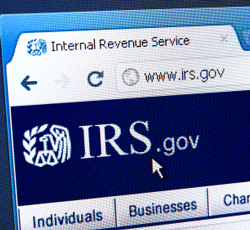VCP Fee Change Represents Opportunity for Larger Plans
 VCP is a program offered by the IRS to allow sponsors of qualified retirement plans (401(k)/ 403(b) plans) to correct retirement plan errors. An applicant must disclose the mistake in writing and then correct the failure and pay a fee.
VCP is a program offered by the IRS to allow sponsors of qualified retirement plans (401(k)/ 403(b) plans) to correct retirement plan errors. An applicant must disclose the mistake in writing and then correct the failure and pay a fee.
The applicant receives approval of the correction from the IRS in the form of a "compliance statement". The VCP process can be used to correct even significant failures regardless of when the application is made following the plan failure. Other correction methods such as self-correction cannot be used after a certain point in time and leave the plan sponsor without approval by the IRS.
The IRS has changed the method for calculating the fee that must accompany an application to the Voluntary Correction Program (VCP). The fee was previously based on the number of participants in a plan. The fee is now based on the value of plan assets. The change allows larger plans to obtain written approval for correction of retirement plan failures for a reduced fee.
Applications that are submitted on or after January 2, 2018 are subject to the following revised fee schedule. It is based on the value of plan assets as stated in the plan's most recent Form 5500:
| Net Assets | VCP Fee |
| $0 to $500,000 | $1,500 |
| Over $500,000 to $10,000,000 | $3,000 |
| Over $10,000,000 | $3,500 |
In 2017 VCP fees ranged from $500 for a Plan with 20 or fewer participants to $15,000 for the largest plans with certain exceptions:
| Number of Plan Participants | VCP Fee |
| 20 or fewer | $500 |
| 21-50 | $750 |
| 51-100 | $1,500 |
| 101-1,000 | $5,000 |
| 1,001-10,000 | $10,000 |
| More than 10,000 | $15,000 |
The change can result in an increased fee in certain circumstances but there is a reduction for a plan with more than 100 participants. The new structure has also eliminated category specific reduced fees, thereby simplifying the determination of the applicable fee.
This change represents a significant savings for larger plans. Operational failures can now be addressed regardless of their level of significance and regardless of how much time has passed since the failure occurred. The determination of whether an error can be corrected through self-correction is often complicated. The reduced fee for a VCP filing encourages larger plans to err on the side of caution and disclose plan mistakes.
Applicants must continue to use Form 8951 which has not yet been revised for the new fee structure. Portions of the form referencing the number of participants should be ignored. The applicable fee as set forth in Rev. Proc. 2018-4 should be submitted with Form 8951.
This article is for information purposes only and should not be considered legal advice. If you have questions about your retirement plan or the content of this article, please contact a member of the Business and Tax practice group at Foster Swift, Collins & Smith, PC.
Categories: Compliance, Employee Benefits, Tax
Categories
- Alerts and Updates
- Personal Property Tax
- Sales Tax
- Income Tax
- Property Tax
- News & Events
- Did you Know?
- Tax Disputes
- News
- Corporate Income Tax
- Use Tax
- Employee Benefits
- Collections
- Insurance
- Venture Capital/Funding
- Compliance
- Financing
- Nonprofit
- Employment
- U.S. Supreme Court
- Labor Relations
- Tax
- Employment Tax & Withholding
- Estate Planning
- Audits
- Crowdfunding
- Alternative Minimum Tax
- Tax-Exempt Organizations



 Share
Share